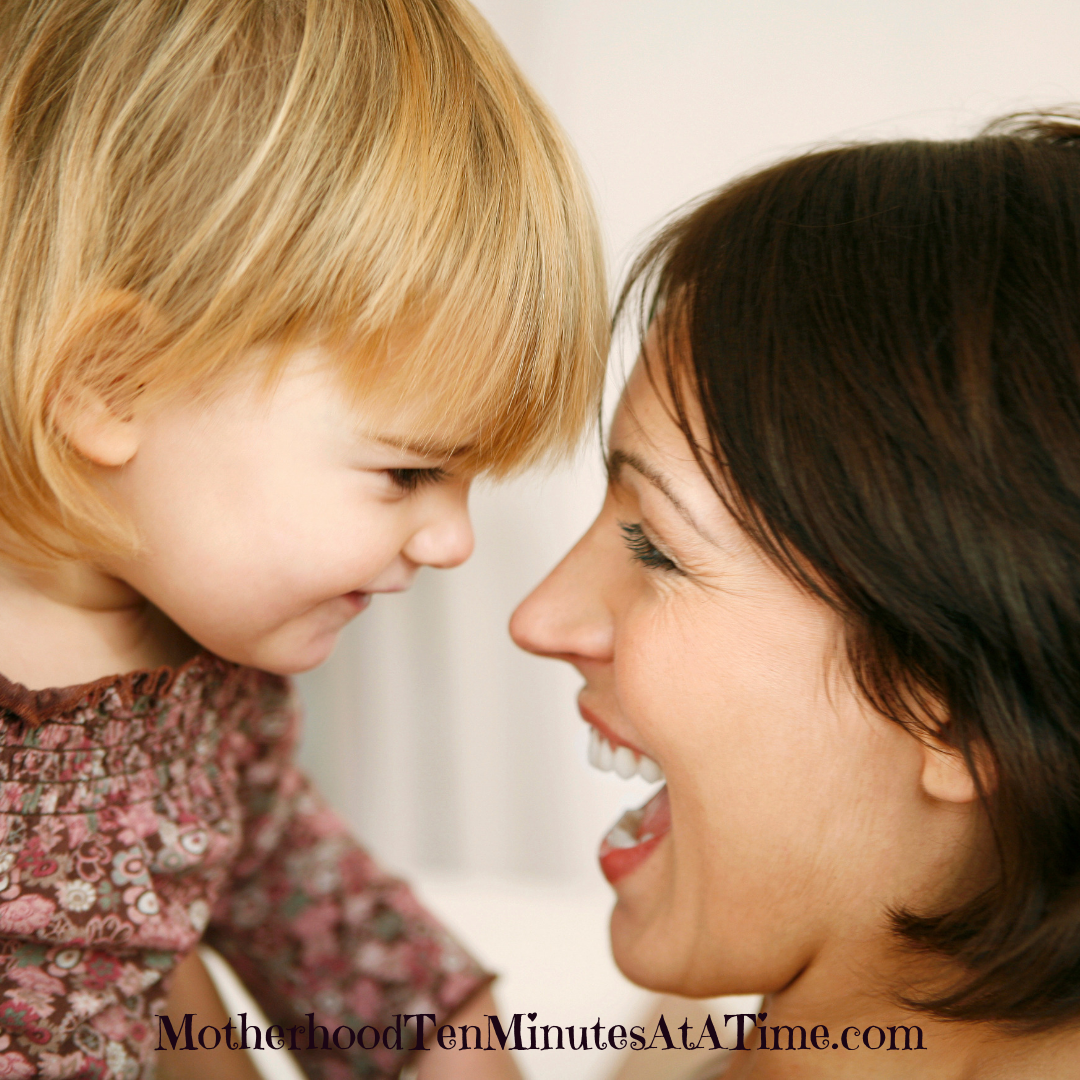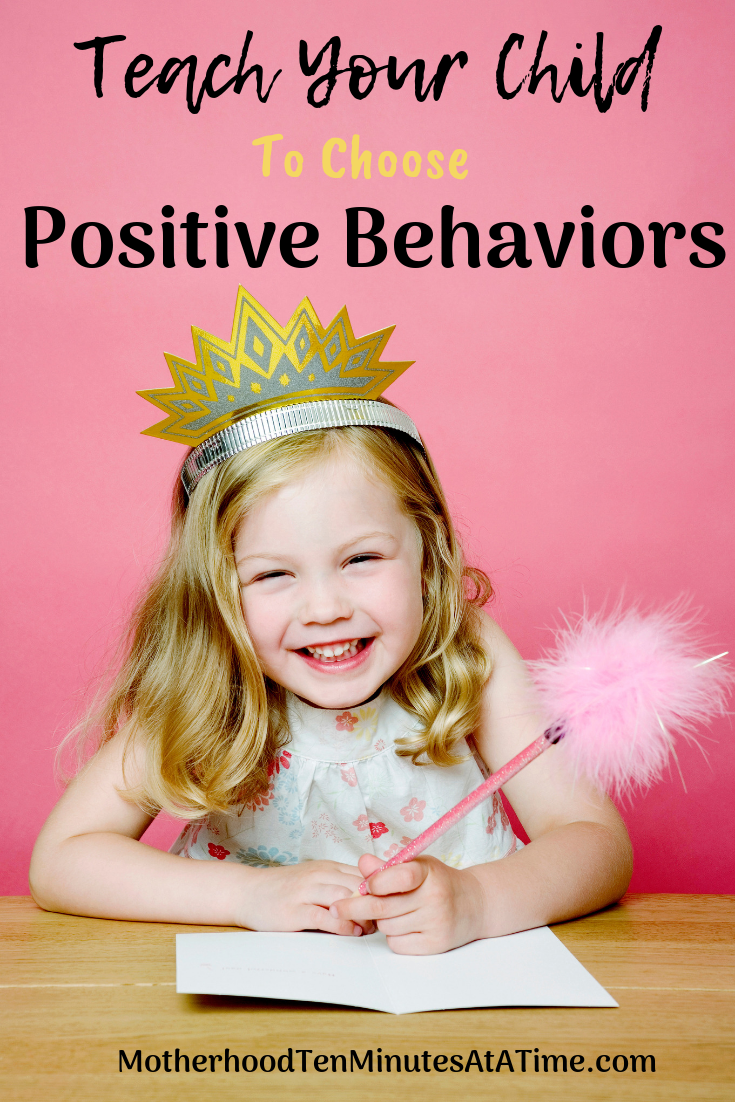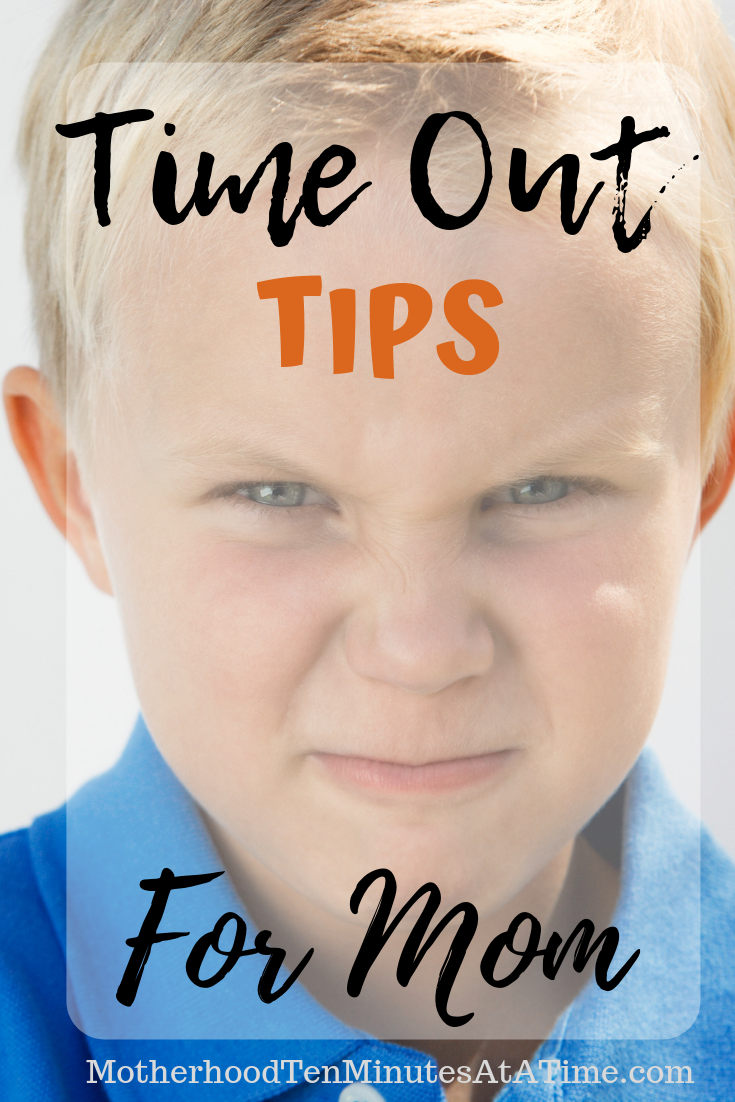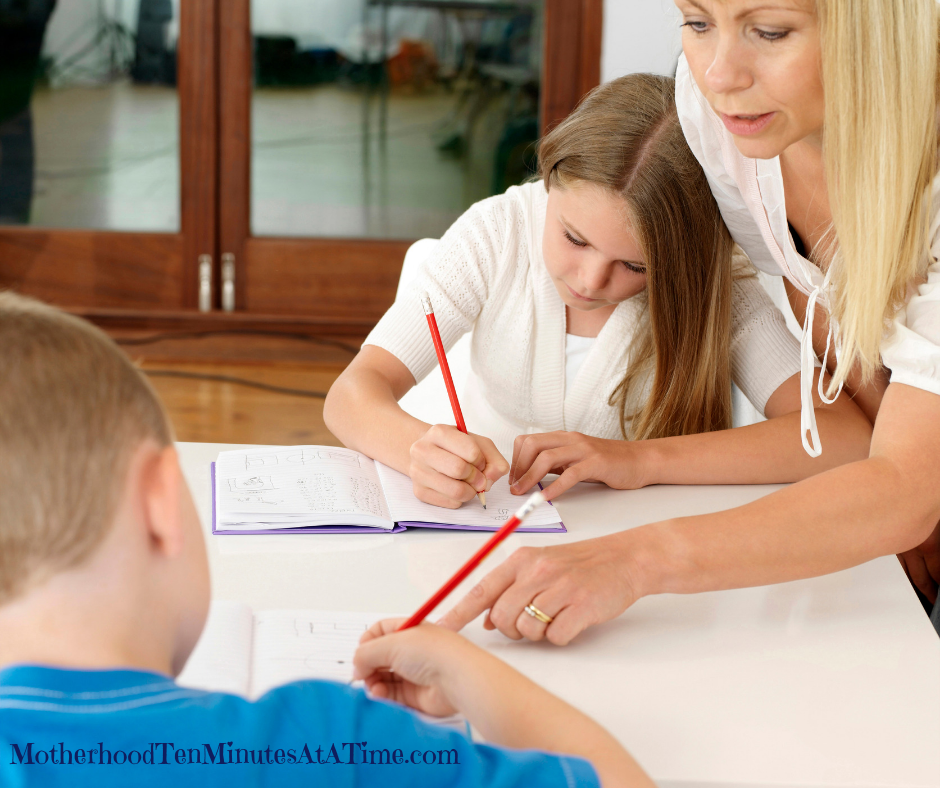How To Cultivate Positive Behavior Choices in Children

This post may contain affiliate links and we may earn compensation when you click on the links at no additional cost to you.
Every parent will face disagreement and/or defiance from their child at one time or another.
Some parents say it seems the most prominent during the “Terrible Twos”.
Other parents say it depends on the child and their individual personality and growth patterns.
However your child’s responsibility develops, at one time or another he or she will not agree with you.
How do you teach your child to stop and recognize how they are acting, take responsibility for their poor choices, and then make positive choices?
There are TWO magic words that get the job done perfectly, after you have followed these three easy steps!
1 Make sure that your request is reasonable
This seems so obvious but when life is being hurled at us as a parent and we are just trying to survive this moment in time, sometimes our judgement gets a little murky.
For example, if you are having a stressful day and realize you have to make another stop on your errand run during your child’s nap time, don’t expect your toddler to make it through without melting down.
They don’t understand the importance of the errand and should not be expected to behave perfectly when they are so tired.

Set yourself and your child up for success by making sure you are both capable of practicing positive behaviors.
Of course, don’t wait for a perfect day because it will never come.
Just make sure that your request is reasonable and that you are being fair in your expectations.
2 Realize that cultivating positive behaviors is a process.
They say it takes twenty-one days to create a habit.
This is a parenting habit you are creating in your family so it may take longer to form this habit, depending on you and your child.
However long it takes for both of you to respectfully and calmly work together when your child makes poor choices, DON’T GIVE UP!

It has taken us years to figure this out but way less time to implement it.
Be patient with the process and trust that with sincere practice it will yield results.
Remember, both of you are learning together.
3 Learn how to be supportive instead of reactive.
Our job as parent is to facilitate and empower learning.
Create positive, healthy habits together with your child.
The child is learning to take responsibility for their actions and to choose positive behaviors.
The parent is learning to embrace a supportive role instead of an active role.

Do not jump in with solutions for your child (See How To Cultivate Responsibility).
You have to request the behavior change, create a positive atmosphere for change, and enforce limits and family rules.
At first it may seem like an overwhelming amount of things to manage all at once but (surprise!) the more YOU practice it, the better you AND your child will get at it!
The Magic Words
To utter these magic words, please remember that you have to be calm, supportive, and committed to seeing the situation through to the desired end result.
Don’t say them unless you mean them (and unless you are going to follow all the way through).
The magic words that you say calmly and firmly while making strong eye contact with your child are…….
“Try Again”.
Do not say please.
You are not giving them a choice about whether they want to change their behavior or not.
You are the parent and have identified unacceptable behavior (they just hit their sister).
You are requesting that they try their behavior again immediately (they need to stop, calm down, apologize, and solve the problem a different way).
It is not up for debate or discussion.
Time Out Tips
If they do not choose to immediately calm down and start thinking of how to fix the behavior, there are fast time-out consequences in our family, no matter where we are.
We have had children in time-out in grocery stores, parks, the mall, church, family members’s houses, and at home.
They have to stand facing a corner or wall and think about their behavior until they are calm and ready to try again.
Bonus Tip: I do not advocate public shaming of children in any way.
If they have to stand in time-out in a public place we either find somewhere quiet and I stand in front of them to block other’s views, or they fold their arms and simply face me with their eyes closed.
I do not ever believe it is healthy or acceptable to shame a child, especially in public.
Our kids hate time-out so much that it does not take very many times before they learn to calm down amazingly fast because they do not want to be in time-out (in public or at home).
They understand through our consistent parenting practice that a time-out only delays the learning process and takes longer to accomplish.
They would rather be playing so they choose to calm down quickly and try again immediately so that they can get back to playing faster.
Time-out does not take the place of learning responsibility, it is simply a method to help them calm down so that they are ready to learn responsibility.
Monitor Their Choices
Once they are calm and ready to try again, monitor their efforts.
If they choose poorly again, it is up to you to enforce family rules and expectations.
For example, in our house one of our family rules is that we always speak respectfully to adults (most especially parents, grandparents, and teachers).
If their choice was to speak disrespectfully to you they must immediately stop, apologize, and speak respectfully.
Another family rule in our house is that we never hurt each other.
If their choice was to trip their sister because they were mad at her, they must immediately help her up, apologize, and work out the problem that caused them to be angry.
Any breakdown in the responsibility chain lands them in a Time-Out until they are ready to make amends and choose positive behaviors.
Personalize Your Child’s Learning
You know your child better than anyone else so your detailed family rules and supportive teaching will be the most effective for your child.
Stubborn children need different parenting support than dreamers but this one simple habit will profoundly affect every parent and every child.
With consistency and practice, it is amazing how fast they learn to stop, calm down, and “Try Again”.
If they know that you will always see the situation through then you have created stability in their lives by setting and sticking with your expectations.

For Every Age
Our younger children learned very quickly how to “Try Again” because they saw the examples of their older siblings.
I have even overheard our older kids telling their siblings to “Try Again” on multiple occasions.
I can’t help but laugh to myself but I am always pleased that it works no matter who is using it.
It is simple, effective, and empowering for your child because they still retain the ability to choose.
It is simple, effective, and empowering for parents because you still retain the power to veto their poor choices and have the satisfaction of watching them learn to choose positive behaviors faster over time.
Eventually a sharp look and strong eye contact may replace you having to say “Try Again” out loud, depending on the age and personality of your child.
Some of our children have needed a LOT more reminders than others.
Some of our children now only need a sharp look and immediately stop and choose a more positive behavior.
Some of our children often don’t need any cues at all and monitor and change their behavior on their own.
We love seeing their progress and their ability to monitor their behaviors and make positive choices.

Children aren’t perfect and never will be.
At any age they may need these reminders and cues from their parents but once you work together to instill this calm method to choosing positive behaviors, you will both be able to refer back to it when you need to.
Please don’t forget to share this with your family and friends (it’s what friends do!) using the share buttons below.
Our best wishes to your family for cultivating a happy, successful, and responsible “Try Again” habit together!
Tags
- Be Happy Healthy and Positive
- Behavior
- Behavior Choices
- Behaviors
- Child Behavior
- Child Choices
- Child Mental Health
- Child Positive Behaviors
- Child Wellness
- Family Life
- How To Teach Your Child To Choose Positive Behaviors
- Parenting
- Positive
- Positive Behavior Choices
- Positive Behaviors
- Positive Choices
- Positive Family Life
- Positive Parenting
- Positivity
- Practice Being Positive
About The Author
savannahsal
This post may contain affiliate links and we may earn compensation when you click on the links at no additional cost to you.
Savannah loves being a Lifestyle Writer sharing her experiences and insights as a mother of six young children. She loves to empower mothers to find better balance and enjoy higher quality time with their family through purposeful family living.
Related Posts
Why Learning Math Is SO Important
This post may contain affiliate links and we may earn compensation when you click on the links at no additional cost to you.
This post may contain affiliate links and we may earn compensation when you click on…
April 26, 2019How To Cultivate Respect In Your Children
This post may contain affiliate links and we may earn compensation when you click on the links at no additional cost to you.
This post may contain affiliate links and we may earn compensation when you click on…
April 8, 2019



Pamela | 25th Jan 19
I am going to start using these 2 magic words TODAY!! I cannot wait to see how my 2 yo and 6 yo benefit from using these tools consistently. I really needed this. Thank you so much for sharing! ♡
savannahsal | 26th Jan 19
They truly are magic words! They give everyone in the situation control (parents and kids) so it eliminates the power struggle and sets up your children to succeed. All while you step away and let them learn to make better choices. Win win!
Erin | 25th Jan 19
I love this! I really liked how you said not to say please, because that is something I do way too much. I am trying to be polite, but in the process I am making it seem like they have a choice when they don’t. Bad behavior needs corrected, trying again is not optional. Perfect!
savannahsal | 26th Jan 19
It took practice for me to not say please too because we don’t want to seem demanding as parents. I learned pretty quickly that by doing it this way, it gave my children a safe and supportive environment to learn and grow. I am calm, polite, and firm and they respond amazingly well!
Danielle | 26th Jan 19
This post is excellent! I especially liked your 3 points at the top. They are spot on!!
savannahsal | 28th Jan 19
Thanks Danielle, these points have saved us so much grief! Ü
Meagan | 27th Jan 19
Great advice! I totally agree with time out anywhere. Many kids know they are not going to get a consequence because parents are embarrassed to discipline their kids in public. Having them take a couple of minutes to stop is so important no matter where they are.
savannahsal | 28th Jan 19
We completely agree with you Meagan! Children need to know that discipline is consistent wherever you are. It actually makes them feel safer Ü
Chris | 27th Jan 19
This post could not have come at a better time! Lately we have been trying to do a little more time in the time out chair. These are all really great tips to get us all through it!
savannahsal | 28th Jan 19
Best of luck with your motherhood journey Chris; learning discipline together can be hard but it is SO worth it!